GABA and Procrastination: Supporting Calm Focus for Productivity
Introduction
Procrastination isn’t just about poor time management or lack of willpower—it’s often about the state of your nervous system. When your mind is tense and your body feels stuck in overdrive, even small tasks can feel overwhelming. You tell yourself to focus, but your brain feels noisy. You try to start, but your chest tightens, and before you know it, you’ve drifted into distraction.
Behind this struggle lies a delicate neurochemical balance—especially involving a calming neurotransmitter called GABA (gamma-aminobutyric acid). GABA acts like the brain’s brake pedal, slowing down excessive neural activity so you can think clearly, stay composed, and take action.
When GABA is low, your brain becomes overstimulated, stress hormones surge, and procrastination takes root. But when GABA levels are balanced, you experience calm concentration, steady motivation, and an effortless ability to begin.
Let’s explore how GABA works, how it affects focus and procrastination, and how to naturally support it through nutrients, supplements, and daily habits for deeper, calmer productivity.
Looking for supplements for This? Click here.
The Overactive Brain and Why We Procrastinate ⚡
Procrastination is a stress regulation problem, not a motivation problem. When faced with a task—especially one that feels uncertain or emotionally risky—your brain perceives a potential threat. The amygdala, your emotional alarm center, sends distress signals to trigger the fight, flight, or freeze response.
Cortisol and adrenaline flood your bloodstream, preparing your body for survival rather than concentration. Your heart rate rises, your thoughts speed up, and the logical part of your brain—the prefrontal cortex—gets hijacked.
That’s when you start to avoid. Avoidance gives you momentary relief from stress, but it reinforces the cycle. The more you escape, the more anxious you feel next time. Over time, the habit of delaying becomes a conditioned response to stress.
What you need isn’t more pressure or self-criticism—it’s a way to calm your nervous system enough to regain control. That’s where GABA becomes crucial.
What Is GABA? 🌙
GABA is the brain’s primary inhibitory neurotransmitter, meaning it slows down overactive neurons. It’s the chemical equivalent of deep breathing for your nervous system.
Where neurotransmitters like dopamine and glutamate excite your brain to act, GABA tells it to pause, breathe, and regulate. It ensures that stimulation and relaxation remain in balance.
When GABA levels are optimal, you feel calm but alert—able to think clearly, stay composed, and focus on a single task. When GABA is low, the opposite happens: mental noise increases, small stresses feel huge, and your ability to focus vanishes.
You may feel “wired but tired”—mentally overstimulated yet physically drained. You want to act, but you can’t quiet your inner chatter long enough to begin.
The GABA–Cortisol Tug-of-War 😣

Cortisol and GABA exist in constant opposition. When stress rises, cortisol floods your system and suppresses GABA signaling. When GABA increases, cortisol naturally lowers, restoring balance.
Chronic stress, poor sleep, or constant stimulation (like caffeine or screen time) can keep your body in sympathetic overdrive, reducing your brain’s sensitivity to GABA. Your neurons stop responding to calming signals, trapping you in a cycle of anxiety and avoidance.
That’s why you might feel exhausted but unable to rest—or paralyzed even when you want to be productive. Boosting GABA helps break this cycle by telling your nervous system that you’re safe, which quiets the amygdala and reactivates the prefrontal cortex.
How Low GABA Feeds Procrastination 🌀
When GABA activity drops, your brain enters a state of excessive excitation. Neurons fire rapidly, thought loops intensify, and small obstacles feel insurmountable. You’re not lazy—you’re overstimulated.
Low GABA shows up as:
😰 Constant background anxiety
💭 Racing thoughts and rumination
😩 Mental fatigue and tension headaches
🕐 Difficulty falling asleep or staying asleep
🧍 Feeling physically restless but mentally stuck
The result? You freeze, overanalyze, or chase distractions to self-soothe. In this state, your brain avoids not because it doesn’t care, but because it’s too flooded to act.
Restoring GABA allows your nervous system to slow down enough to think, focus, and choose—three abilities essential for productivity.
GABA and the Calm Flow State 🌊
The best work happens in a state of calm engagement, often described as “flow.” In this state, stress hormones are low, focus is high, and your sense of time fades.
Neuroscientists have found that during flow, the brain experiences increased GABA activity—especially in regions like the prefrontal cortex. GABA quiets irrelevant mental chatter, allowing attention and creativity to channel smoothly toward one goal.
When GABA is depleted, it’s nearly impossible to reach that state. You jump between tabs, lose track of time, and struggle to begin tasks because your brain is overstimulated and fragmented.
Restoring GABA helps bring your mind back into alignment—alert but relaxed, active but not anxious.
Modern Life: The Perfect GABA Disruptor 💻☕
Our modern environment is engineered for overstimulation. Constant notifications, caffeine consumption, processed foods, and chronic stress all chip away at the brain’s ability to regulate GABA.
Each dopamine hit from your phone or caffeine spike pushes your brain further into an excitatory state dominated by glutamate, GABA’s opposite. Without enough downtime or recovery, the system can’t rebalance, and your ability to focus deteriorates.
This is why long hours of multitasking or high stress don’t just make you tired—they make you scattered. Supporting GABA means reclaiming your brain’s ability to downshift and reset between bursts of effort.
How to Support GABA Naturally 🌿
Restoring GABA isn’t about sedation—it’s about balance. The goal is calm focus, not numbness or drowsiness. Here are some science-backed ways to strengthen your brain’s GABA system and beat stress-induced procrastination naturally.
🌿 L-Theanine: Calm Alertness in a Cup of Tea
L-Theanine, an amino acid found in green tea, increases GABA, serotonin, and dopamine simultaneously—creating a unique state of calm alertness. It promotes alpha brain waves, associated with relaxed focus.
People who supplement L-Theanine often describe feeling “peacefully productive.” It reduces overthinking without dulling mental sharpness, making it perfect for those who freeze under pressure.
🌙 Magnesium: The Relaxation Mineral
Magnesium is essential for GABA receptor function. When you’re deficient, your neurons can’t properly respond to GABA’s calming signals. This leads to irritability, tension, and restlessness.
Magnesium glycinate or threonate are the most bioavailable forms for supporting the nervous system. Many notice deeper sleep, smoother focus, and less reactivity after consistent use.
🌼 Taurine: The GABA Helper
Taurine acts as a GABA agonist, meaning it binds to GABA receptors and enhances their calming effects. It helps stabilize mood and supports steady energy throughout the day.
Athletes, students, and high-stress professionals often find taurine improves both endurance and mental resilience.
Looking for supplements for This? Click here.
🌞 B Vitamins: The Neurotransmitter Builders
Vitamin B6 is required for converting glutamate (the excitatory neurotransmitter) into GABA. Without enough B6, you can get stuck in overexcitation.
A balanced B-complex supports overall neurotransmitter synthesis, energy metabolism, and stress resilience.
🧘 GABA (as PharmaGABA®): Direct Calm
While standard GABA supplements have limited brain absorption, the natural form known as PharmaGABA®, produced via fermentation, has shown promise. It communicates with the brain through the gut-brain axis, reducing cortisol and promoting alpha waves associated with calm attention.
It’s particularly useful before stressful events or as part of a nighttime relaxation routine.
🌾 Adaptogens That Support GABA Indirectly
Herbs like Ashwagandha, Lemon Balm, and Passionflower support GABA activity while lowering cortisol. They don’t just calm you—they make your nervous system more resilient to future stress.
Ashwagandha, in particular, helps the brain stay composed under pressure, breaking the link between anxiety and avoidance.
The Role of the Gut–Brain Axis 🍎
Up to 90% of GABA is produced in the gut by beneficial bacteria. That means gut health has a profound impact on your mental calm and motivation.
A diet high in fiber, fermented foods, and polyphenols supports microbial diversity and steady GABA signaling through the vagus nerve.
Foods like kefir, yogurt, kimchi, bananas, and leafy greens not only nourish your microbiome but also feed your mental clarity. The gut is, in essence, your “second brain”—and one that speaks GABA fluently.
Breathwork, Movement, and GABA 🌬️
Your breath is one of the fastest ways to influence GABA activity. Slow, rhythmic breathing increases parasympathetic tone and boosts natural GABA production.
Practices like yoga, tai chi, and meditation have been shown in brain imaging studies to elevate GABA levels significantly. Just ten minutes of deep breathing or mindfulness can calm racing thoughts enough to take action.
Exercise also helps. Moderate aerobic activity—like walking, cycling, or dancing—boosts GABA by improving circulation and oxygen delivery to brain regions that regulate emotion and focus.
Movement and breath are the body’s built-in neurotransmitter therapy.
The Emotional Reframe: From Fear to Flow 💫
Many procrastinators aren’t lazy—they’re afraid. Afraid of judgment, failure, or imperfection. Fear tightens the chest, floods the body with cortisol, and silences the calm voice of reason.
When you strengthen GABA, fear no longer feels paralyzing. You can observe it without being overwhelmed. The mind becomes spacious again, capable of curiosity and choice.
This emotional regulation is what allows for flow—the effortless state where action replaces avoidance, and time dissolves into deep engagement.
The Takeaway 🌱
Procrastination isn’t a moral failing—it’s a signal that your nervous system is overloaded. When GABA levels are low, the brain becomes trapped in stress and avoidance. But when GABA is supported—through nutrition, mindfulness, and lifestyle balance—you regain control.
You stop fighting your mind and start working with it. Tasks stop feeling like threats and start feeling like possibilities.
Supporting GABA is about more than focus—it’s about creating a state of calm readiness where clarity, motivation, and creativity flow naturally.
When your brain feels safe, it doesn’t resist action—it embraces it. And that’s how calm becomes your most powerful productivity tool. 🌿💛
Looking for online therapy ? Click Here.
References 📚
Petty, F. (1995). GABA and mood disorders: a brief review and hypothesis. Journal of Affective Disorders.
Streeter, C. C., et al. (2007). Yoga as a treatment for stress and anxiety: neurochemical mechanisms. Medical Hypotheses.
Watanabe, M., et al. (2002). PharmaGABA®’s effects on stress and relaxation in humans. Biofactors.
Kennedy, D. O. (2016). Cognitive function, brain energy, and nutritional influences. Nutrition Reviews.
O'Connell, K., et al. (2020). The gut-brain axis and neurotransmission. Frontiers in Psychiatry.
Panossian, A., & Wikman, G. (2010). Adaptogens in stress and fatigue. Phytomedicine.
Related Posts
-

Why Co-Dependency Feels Draining: Adrenal Fatigue and Supplements That Help
The adrenal glands are small but powerful organs that sit above your kidneys, acting as your body’s built-in stress managers. They produce hormones like cortisol and adrenaline that help regulate energy, mood, and resilience. When they’re overworked from chronic stress or emotional exhaustion, fatigue and imbalance follow. Supporting adrenal health naturally can help restore calm, energy, and hormonal balance. 🌿⚡
-

The Link Between Anxiety, Co-Dependency, and Natural Support
Anxiety feels like living in constant alert mode—your heart races, your thoughts loop, and your body can’t find peace. It’s the nervous system’s way of preparing for danger, even when none exists. Understanding what’s happening in your mind and body is the first step toward calming the storm and restoring balance. 🌿💫
-

Supplements That Support Dopamine and Serotonin in Co-Dependent Patterns
Serotonin is the neurotransmitter of calm, confidence, and contentment. When it’s balanced, you feel peaceful and emotionally grounded. When it’s low, anxiety, mood swings, and emotional dependence take over. By understanding serotonin’s role in emotional health—and how to support it naturally—you can rebuild inner stability, improve relationships, and cultivate lasting happiness from within. 🌞💫
-

How Emotional Exhaustion in Codependency Impacts the Nervous System
The nervous system is the body’s communication network, connecting the brain to every organ and muscle. It regulates stress, mood, and emotion through a delicate balance of electrical and chemical signals. When overwhelmed, it can become dysregulated—leading to fatigue, anxiety, and emotional imbalance. Understanding how to calm and strengthen the nervous system is key to healing from chronic stress and emotional burnout. ⚡🌿
-

What Is Co-Dependency? The Role of Brain Chemistry and Stress
Stress is more than a feeling—it’s a full-body experience that begins in the brain and ripples through every cell. When cortisol surges and the nervous system stays on alert, your body can’t rest or recover. Over time, this constant tension affects energy, focus, mood, and even immune health. Understanding stress chemistry is the first step toward breaking free from burnout and finding calm again. 🌿
-

Creating a Supplement Stack for Motivation, Energy, and Anti-Procrastination
Motivation is the fuel behind every meaningful achievement—but it’s not just about willpower. It’s a mix of mindset, brain chemistry, and momentum. When energy, focus, and purpose align, action feels natural instead of forced. Learn how to harness motivation as a daily state, not a fleeting feeling.
-

Supplements for Building Consistency and Reducing Chronic Procrastination
Biochemistry is the bridge between biology and chemistry—the science of life at the molecular level. It explains how nutrients, hormones, and neurotransmitters interact to create energy, thought, and emotion. From brain function to muscle movement, biochemistry reveals the invisible processes that sustain health, balance, and vitality.
-

Ashwagandha and Procrastination: Lowering Stress to Improve Action
Science is the language of curiosity and discovery. It helps us understand the hidden patterns behind life, energy, and the universe. Through experimentation and critical thinking, science connects imagination to evidence—turning questions into knowledge. Whether through microscopes, molecules, or minds at work, science represents our endless pursuit of truth and innovation.
-

Neurotransmitters and Motivation: Supplements That Support Drive and Focus
Supplements can do more than boost physical health—they can also enhance mental clarity, focus, and motivation. Nutrients like omega-3s, magnesium, B vitamins, and adaptogens help balance neurotransmitters, stabilize mood, and support brain energy. When combined with good sleep, nutrition, and mindful habits, they can transform how your brain performs under stress.
-

How Stress Hormones Like Cortisol Fuel Procrastination (and What Helps)
Blood sugar isn’t just about physical health—it directly impacts focus, mood, and motivation. When glucose levels spike and crash, energy and attention do the same, fueling procrastination and brain fog. Learning how to stabilize blood sugar through balanced meals, mindful habits, and key nutrients helps keep your mind steady, focused, and ready to act.
-

Brain Fog and Procrastination: Supplements for Mental Clarity
Brain fog can turn even simple tasks into mental hurdles. When your thoughts feel slow and unclear, procrastination often follows—making focus and productivity seem impossible. This article explores the biochemical and lifestyle causes of brain fog and reveals the most effective supplements for restoring mental clarity, focus, and sustained energy.
-

The Link Between Low Energy and Procrastination: Can Supplements Help?
Neurochemistry shapes how we think, feel, and act. When neurotransmitters like dopamine, serotonin, and GABA fall out of balance, it can lead to fatigue, anxiety, or lack of motivation—fueling procrastination and low mood. Understanding the brain’s chemical communication system helps us find ways to restore focus, calm, and emotional stability through nutrition, mindfulness, and targeted supplements.
-

Why Do We Procrastinate? The Role of Dopamine and Supplements That Support It
Dopamine is the brain’s motivation messenger—the chemical that fuels focus, reward, and drive. When dopamine levels drop, even simple tasks can feel impossible to start. This article explores how dopamine shapes procrastination, motivation, and mental energy, along with natural supplements and daily habits that help restore balance and get things done.
-

Phosphatidylserine and Stress Reduction for People with BDD
Stress is more than a mental state—it’s a full-body experience that affects hormones, brain chemistry, and emotional balance. For people with Body Dysmorphic Disorder (BDD), constant tension and worry about appearance can overload the nervous system. Learning how stress works and finding ways to calm it is key to breaking the cycle of anxiety and self-criticism.
-

How Antioxidants Like Vitamin C & E Support Mental Health in BDD
Antioxidants are the body’s natural defense against stress and inflammation. For people with Body Dysmorphic Disorder (BDD), oxidative stress can worsen fatigue, anxiety, and emotional imbalance. Nutrients like Vitamin C and E help protect brain cells, boost neurotransmitter function, and support a calmer, clearer mindset—building a stronger foundation for recovery.
-

Ginkgo Biloba and Memory Support for BDD Recovery
Emotional regulation is the foundation of healing from Body Dysmorphic Disorder (BDD). When the nervous system stays in constant overdrive, even small stressors can trigger self-critical spirals. Learning to calm emotional reactivity helps restore clarity, confidence, and a sense of inner balance. By blending mindfulness, nervous system support, and self-compassion, you can retrain your brain to respond—not react—to emotion.
-

Alpha GPC and Cognitive Function in Body Dysmorphic Disorder
Mental fatigue can feel like your brain has hit a wall—thoughts slow down, focus fades, and motivation disappears. For people with Body Dysmorphic Disorder (BDD), chronic overthinking, emotional stress, and constant self-evaluation can deplete mental energy even further. Understanding what causes this cognitive exhaustion is the first step toward recovery—through rest, balanced nutrition, and targeted brain-supporting supplements.
-

N-Acetyl L-Tyrosine and BDD: Supporting Mental Clarity
Chronic stress doesn’t just affect your mood—it reshapes your brain chemistry, weakens focus, and fuels the obsessive thought loops common in Body Dysmorphic Disorder (BDD). Over time, constant cortisol elevation drains mental energy and emotional balance. Learning to recognize and manage chronic stress is essential to restoring mental clarity, self-compassion, and resilience.
-

Chamomile and Lavender for Calming Obsessive Body Image Thoughts
The nervous system is the command center of our emotional and physical world—and in Body Dysmorphic Disorder (BDD), it often operates in overdrive. Understanding how the brain and body communicate under stress reveals why intrusive thoughts feel uncontrollable. Learning to regulate the nervous system through calm practices, nutrition, and supplements helps restore inner balance and emotional safety.
-

Adaptogens for Body Dysmorphic Disorder: Rhodiola, Ginseng, and More
Rhodiola rosea, often called the “golden root,” is an adaptogenic herb renowned for boosting stress resilience and mental endurance. For individuals with Body Dysmorphic Disorder (BDD), Rhodiola may help reduce fatigue, regulate cortisol, and enhance emotional balance. By supporting both mind and body, this powerful plant promotes calm focus, improved mood, and renewed energy to face daily challenges.
-

B Vitamins for Stress Resilience in BDD: Rebuilding Calm from Within
Biochemistry is at the heart of every thought, emotion, and reaction we experience. In Body Dysmorphic Disorder (BDD), chemical imbalances in neurotransmitters like serotonin, dopamine, and GABA can amplify stress and distort self-perception. Understanding the biochemistry behind mood and stress regulation offers a path toward healing—bridging the gap between emotional experience and the body’s molecular balance.
-

Melatonin and Body Dysmorphic Disorder: Restoring Healthy Sleep Patterns
Melatonin, the body’s natural sleep hormone, plays a vital role in helping people with Body Dysmorphic Disorder (BDD) restore healthy sleep cycles. When anxiety and obsessive thinking interfere with rest, melatonin levels often drop, leading to more emotional reactivity and distorted self-perception. This article explores how melatonin works, why BDD disrupts it, and how natural supplementation—combined with mindful routines—can help the brain and body finally find calm at night.
-

Sleep Struggles with BDD: Supplements for Rest and Recovery
When you’re living with Body Dysmorphic Disorder (BDD), restful sleep can feel impossible—but the right supplements can help reset your body’s natural rhythm. From magnesium and L-theanine to 5-HTP and ashwagandha, these nutrients support relaxation, lower cortisol, and enhance melatonin production. This article explores how supplements can calm the mind, ease nighttime anxiety, and promote true restorative sleep for emotional and physical recovery.
-

5-HTP and Serotonin Balance: Could It Help with Body Dysmorphic Disorder?
Anxiety can feel like a storm inside the mind—restless, overwhelming, and hard to control. In people with Body Dysmorphic Disorder (BDD), anxiety often fuels obsessive thoughts and self-criticism, creating a painful cycle of worry and self-doubt. This article explores the biological roots of anxiety, the role of neurotransmitters like serotonin and GABA, and how natural strategies such as mindfulness, supplements, and nervous system regulation can restore calm and mental clarity.
-

Can Ashwagandha Help Ease Stress and Anxiety in Body Dysmorphic Disorder?
Neurotransmitters like serotonin, dopamine, GABA, and acetylcholine are the chemical messengers that shape how we think, feel, and react to stress. In Body Dysmorphic Disorder (BDD), imbalances in these neurotransmitters can amplify anxiety, obsessive thinking, and emotional distress. This article explores how restoring healthy brain chemistry through nutrition, supplements, and mindfulness can help bring clarity, calm, and emotional stability.
-

L-Theanine for BDD: Finding Calm in the Mind
Neurochemistry plays a central role in how we think, feel, and see ourselves. For those living with Body Dysmorphic Disorder (BDD), imbalances in neurotransmitters like serotonin, dopamine, and GABA can intensify anxiety, obsessive thoughts, and emotional distress. This article explores how regulating brain chemistry through supplements, mindfulness, and lifestyle changes can bring the nervous system back into harmony and restore inner calm.
-

Omega-3 Fatty Acids and Body Image Disorders: Supporting Emotional Health
Omega-3 fatty acids do far more than support heart health—they nourish the brain, stabilize mood, and may ease the emotional turbulence tied to body image disorders like BDD. This in-depth article explores how omega-3s regulate serotonin, dopamine, and inflammation, helping individuals reduce obsessive thoughts and rebuild self-acceptance. It also connects nutrition to therapy, mindfulness, and nervous system balance for holistic emotional healing.
-

Magnesium and BDD: Calming an Overactive Nervous System
Magnesium plays a crucial role in calming an overactive nervous system—something people with Body Dysmorphic Disorder (BDD) struggle with daily. This article explores how magnesium supports relaxation, emotional regulation, and stress reduction while diving into the science behind its connection to brain chemistry. It also examines how combining magnesium supplementation with therapy and breathwork can help rebalance the body’s stress response, reduce obsessive thought patterns, and promote lasting nervous system calm.
-

The Gut-Brain Axis and BDD: Why Probiotics Might Matter
The gut and brain are constantly in conversation — and that dialogue may shape how you experience Body Dysmorphic Disorder. By nurturing your microbiome with probiotics, prebiotics, and gut-healing nutrients, you can help rebalance serotonin, calm anxiety, and restore emotional stability from within 🧠🦠.
-
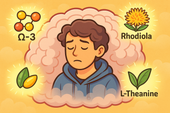
Brain Fog and Body Dysmorphic Disorder: Can Nootropic Supplements Help?
Brain fog often accompanies Body Dysmorphic Disorder, clouding focus and deepening emotional fatigue. Nootropic supplements like L-theanine, Rhodiola, and CoQ10 can help restore mental clarity, balance neurotransmitters, and bring calm energy back to the mind 🌿🧠.
-

How Stress Hormones Like Cortisol May Worsen Body Dysmorphic Disorder
Chronic stress floods the brain with cortisol — the hormone that keeps you on high alert. In Body Dysmorphic Disorder, this chemical overdrive fuels anxiety, distorts self-image, and traps the body in survival mode. Calming cortisol helps restore both peace and perspective 🌿🧠.
-

The Role of Neurotransmitters in BDD—and How Supplements May Help
Neurotransmitters like serotonin, dopamine, glutamate, and GABA shape how people with Body Dysmorphic Disorder perceive themselves. When these brain messengers fall out of balance, perception distorts — but targeted supplements can help restore calm, focus, and emotional regulation 🧠🌿.
-

What Is Body Dysmorphic Disorder? A Deeper Look at the Mind-Body Connection
Body Dysmorphic Disorder (BDD) isn’t just about appearance — it’s about perception. When brain chemistry, trauma, and stress distort self-image, the mind begins to see flaws that aren’t truly there. Healing starts by calming the nervous system and reconnecting mind and body 🪞🧠.
-
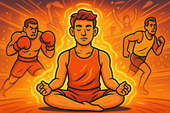
Keeping Calm in Competitive Sports: How to Train Your Mind, Body, and Chemistry for Peak Performance
Competitive pressure can overwhelm even the strongest athletes — but calm is trainable. By combining supplements like magnesium, L-theanine, and adaptogens with breathwork and mindset training, you can stay focused, balanced, and in control under any level of stress 🧠🏅.
-

Supplements for Parents Facing Toddler Tantrums: Staying Calm When Little Emotions Run Wild
Toddler tantrums can drain even the most loving parent — but your calm is powerful. With the right supplements like magnesium, L-theanine, and ashwagandha supporting your nervous system, you can stay patient, grounded, and kind, even when emotions run high 🧸🌿.
-

Workplace Stress and Anger Management Support
Workplace stress can quickly turn into frustration — but calm is a skill you can train. By combining supplements like magnesium, L-theanine, and adaptogens with breathwork and mindset tools, you can stay focused, patient, and emotionally grounded no matter how intense the office gets 💼🌿.
-

How to Stay Patient With Family During Stressful Holidays
Holiday gatherings can stir up old stress and test your patience — but calm is possible. With nervous system support from magnesium, L-theanine, and adaptogens, plus mindful breathing and clear boundaries, you can stay centered, kind, and grounded even when family chaos unfolds 🎄💞.
-

Supplements to Keep Calm During Traffic Jams
Getting stuck in traffic doesn’t have to ruin your mood. With calming supplements like magnesium, L-theanine, and ashwagandha, you can train your body to stay relaxed and focused behind the wheel — turning gridlock into a moment of grounded patience 🚗🌿.
-
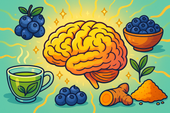
The Role of Antioxidants in Healing Brain Stress from Dissociation
Antioxidants protect the brain from the oxidative stress caused by trauma and dissociation. By neutralizing free radicals and supporting mitochondrial recovery, they help restore clarity, focus, and emotional balance — allowing the mind to heal at the cellular level 🌿🧠.
-
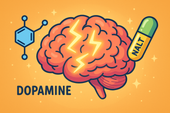
N-Acetyl L-Tyrosine (NALT) for Supporting Mental Clarity
N-Acetyl L-Tyrosine (NALT) fuels dopamine production — the neurotransmitter of focus and motivation. By supporting brain chemistry during stress, NALT helps restore mental clarity, energy, and alertness, making it easier to think clearly and feel present again ⚡🧠.
-

How Ginseng May Improve Focus and Energy in Dissociation
Ginseng helps combat the mental fatigue and fog that often come with dissociation. By supporting mitochondrial energy, balancing neurotransmitters, and regulating cortisol, it gently restores focus, motivation, and emotional presence — helping the mind reconnect with clarity and strength 🌿⚡.
-
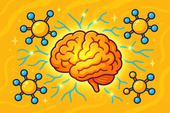
Phosphatidylserine and Dissociation: Supporting Cognitive Function
Phosphatidylserine helps calm the stress response by balancing cortisol, the body’s primary stress hormone. By lowering cortisol spikes, it protects memory, focus, and emotional stability — restoring clarity and mental presence for those struggling with dissociation 🧠🌿.
-
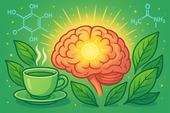
Can Green Tea Extract Help with Dissociative Brain Fog?
Green tea extract may help lift dissociative brain fog by supporting neurotransmitter balance, reducing inflammation, and enhancing energy at the cellular level. With its key compounds EGCG and L-theanine, it promotes calm focus, clarity, and emotional presence — helping you feel more alert and grounded 🍵🧠.
-
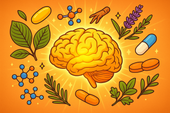
Building a Natural Supplement Stack for Dissociation Support
Building a supplement stack for dissociation means nourishing the brain and body back into communication. By supporting neurotransmitters, gut health, and energy balance through nutrients like magnesium, omega-3s, curcumin, and probiotics, you can help restore clarity, calm, and connection — one layer at a time 🌿🧠.
-

Chamomile and Lavender for Dissociative Anxiety Relief
Chamomile and lavender work together to calm dissociative anxiety by soothing the nervous system and restoring emotional safety. Their natural compounds balance cortisol, enhance GABA activity, and activate the vagus nerve — helping you feel grounded, connected, and at peace again 🌿💜.
-
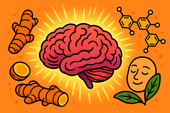
Curcumin for Inflammation and Mental Clarity in Dissociation
Curcumin, the golden compound in turmeric, does more than fight inflammation — it helps clear the mental fog often tied to dissociation. By calming neuroinflammation, balancing neurotransmitters, and supporting mitochondrial energy, curcumin can restore mental clarity, focus, and emotional presence 🌿🧠.
-
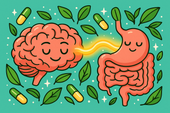
Probiotics and Dissociation: Exploring the Gut–Brain Axis
The gut–brain axis plays a vital role in emotional awareness and presence. When the microbiome is balanced, it supports serotonin production, vagus nerve activity, and calm focus. Probiotics help repair this connection — restoring safety, clarity, and the feeling of truly being in your body again 🌿🧠.
-
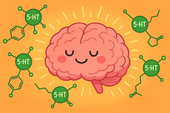
5-HTP for Dissociation: Supporting Serotonin and Emotional Stability
5-HTP helps bridge the gap between emotional numbness and stability by supporting serotonin production — the neurotransmitter that shapes mood, sleep, and sensory awareness. For people experiencing dissociation, 5-HTP may gently restore connection, presence, and emotional balance from the inside out 🌿🧠.
-
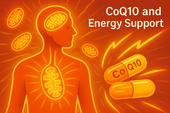
CoQ10 and Energy Support for People with Dissociation
Chronic dissociation often leaves the body running on empty — tired, foggy, and disconnected. CoQ10 helps recharge that system at the cellular level by restoring mitochondrial energy, reducing oxidative stress, and supporting the brain’s capacity to stay present. It’s energy medicine for both body and mind ⚡🧠.

















































